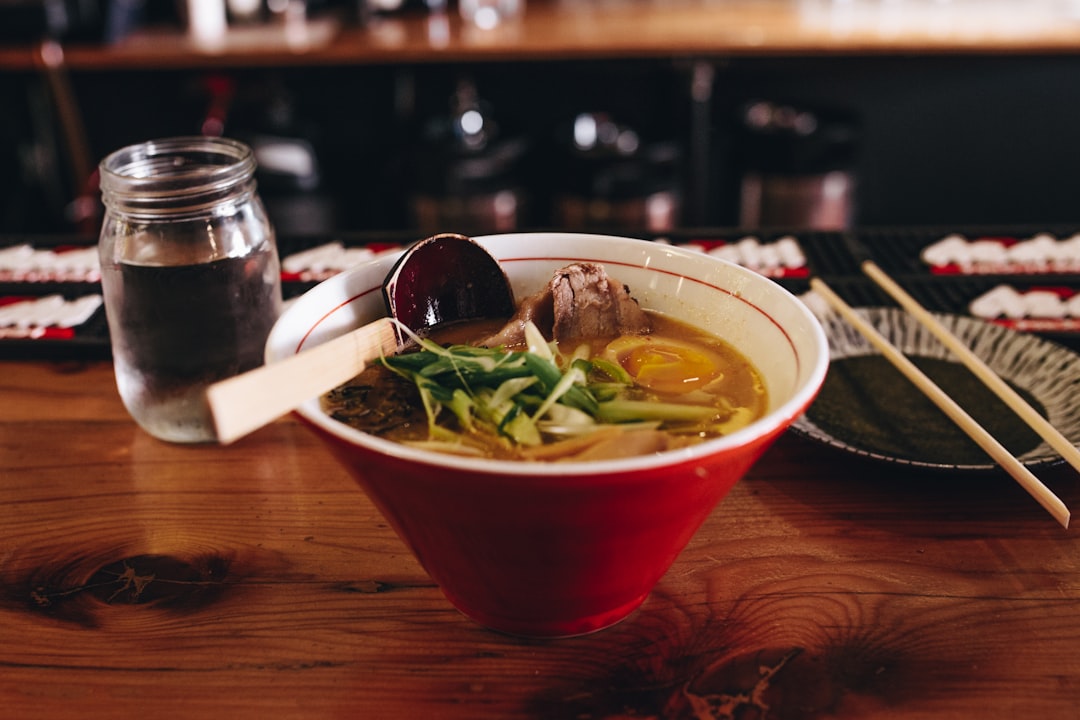Egusi soup
To make the dish, the melon seeds are ground until their texture resembles coarse cornmeal. Then, palm oil is heated in a large pot and various ingredients, such as onions, tomatoes, pepper, and stock, are added and cooked until a thick paste is formed. Once the paste has been allowed to simmer, the melon seed mixture is stirred in, along with additional seasonings, such as crayfish and smoked fish, and often served with pounded yams or fufu.
The resulting soup is not only nourishing but complex in taste and aroma. Its hearty base is accentuated by the tang oftomatoes, sweetness of palm oil, and brininess of the smoked fish. Beyond its excellent flavor, Egusi soup offers a bounty of health benefits. It is packed with healthy fats and minerals, including magnesium and fiber, which help with digestion and cholesterol levels.
In recent years, many variations on the classic soup have been created, including vegetarian versions made with vegetables such as okra and squash, allowing for more versatility. This easy and nutritious recipe makes it a great meal for any occasion. Whether you’re looking for an authentic taste of West African cuisine, or simply trying to liven up your dinner table, Egusi soup is an excellent choice.
Egusi soup recipes
Amazing Egusi soup recipes sourced from the web.
The origin of Egusi soup
Egusi soup is a beloved savory dish originating from West African cuisine. For centuries, it has been consumed as a staple food in many parts of the continent, but its exact origin remains uncertain. Some accounts trace the dish as far back as ancient Egypt; according to these theories, Egusi soup was introduced to West Africa during the trans-Saharan trading era. Others point to the arrival of Portuguese traders in the 16th century as the source of this traditional delicacy.
The main ingredient of Egusi soup is a ground seed from the Cucumeropsis mannii plant, commonly referred to as melon seeds or egusi. These seeds provide a distinct nutty flavor and firm texture to the soup. Often combined with vegetables such as okra, spinach, and bitter leaf, Egusi soup can vary depending on the vegetables used in the recipe. It can also be prepared in a variety of ways, including stewed, boiled, simmered, and fried.
No matter the particular recipe, Egusi soup is almost always served with fufu, a traditional starch made from cassava, yams, or plantains. This starchy side provides a tasty contrast to the rich, hearty flavor of the soup. All your favorite ingredients – from fish and beef to crayfish, peppers, onions, tomatoes, and various spices – are combined in this iconic dish to create a unique and flavorful meal.
For those unfamiliar with traditional West African cuisine, the remarkable flavor of Egusi soup is sure to tantalize the taste buds. If you’re looking for something new to enjoy, consider giving this beloved dish a try. With its intriguing roots and array of flavors, Egusi soup may prove to be an intriguingly unctuous culinary experience.
Types of Egusi soup
The Egusi soup is a beloved dish across many African countries and cultures, but each has its own particular preparation of this delicious soup. This savory stew uses Egusi (melon) seeds as its main ingredient, which are cooked into a tasty broth along with several hearty add-ins.
In Nigeria, Egusi soup is among the most popular dishes in existence. Ogbono, another type of Nigerian soup, is also made with Egusi seeds, however it is distinct from the classic Egusi soup due to its use of groundnut paste and other spices. In this variation, Egusi is cooked until creamy, then blended with the paste and other ingredients like crayfish, smoked fish, and chili peppers. The final result is a thick, indulgent stew that's served over steaming hot fufu.
Likewise, in Ghana, Egusi soup is referred to as 'Palaver' and is a staple in the country's cuisine. Unlike the Nigerian recipe, there is no blending of the Egusi seeds - instead, they are simmered with beef or fish, onion, tomatoes, pepper, and garlic. This version of Egusi soup bears a much milder flavor than its Nigerian counterpart, though it is still very flavorful and fragrant.
The Cameroonian take on Egusi soup is a bit more complex. Perfumed with clove and bay leaves, the dish usually contains an array of other fillings such as okra, spinach, bitter leaf, palm nuts, and even black eyed peas. This version of Egusi soup also utilizes a good amount of groundnut paste for added flavor and richness.
Finally, there is the Ivorian version of Egusi soup, which is commonly called ‘Agushie’. This soup often includes unusual ingredients like dried shrimp, cassava leaves, and even boiled eggs, all of which add a unique flavor profile to the Egusi soup.
No matter where you may find yourself in the world, you can be sure to stumble upon a different version of Egusi soup that will tantalize your taste buds. If you’re looking for something new, be sure to venture out and try some of the unique variations of this cherished African dish.




